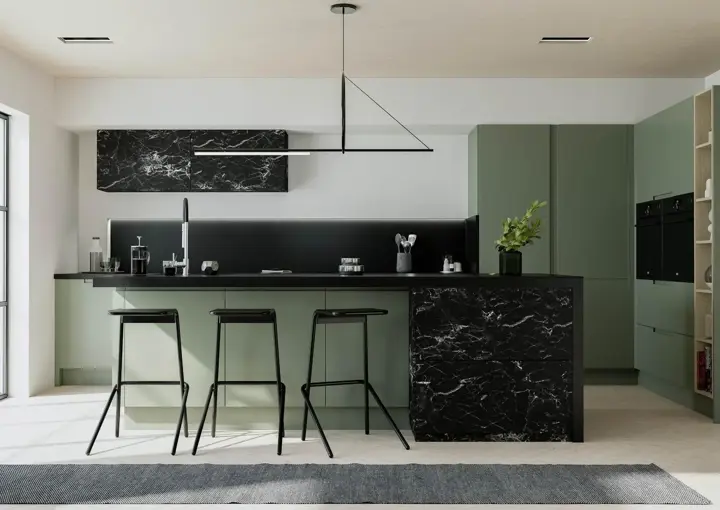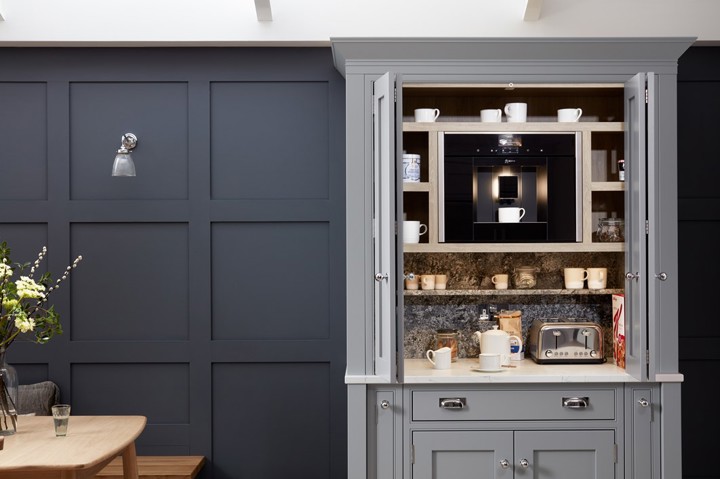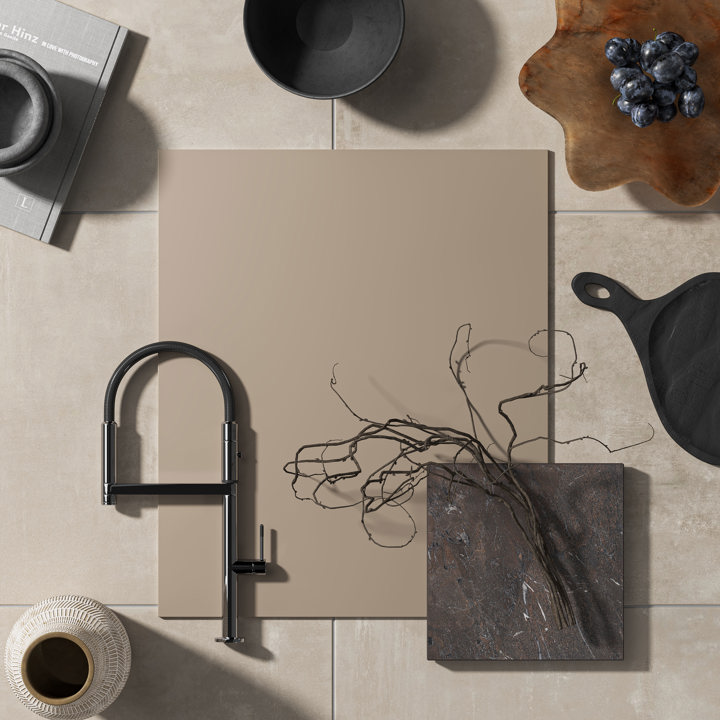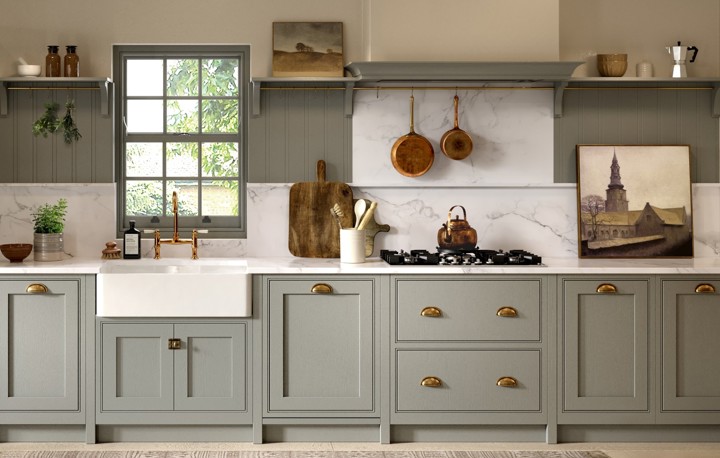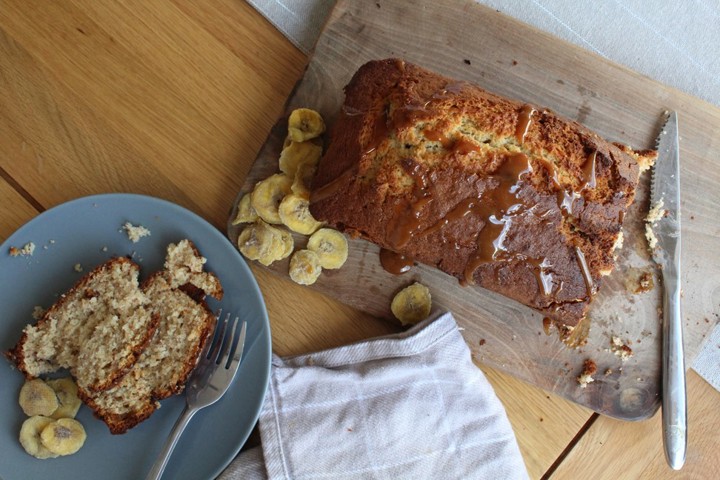Top Tips from luxury, London based, independent florist,
Blume Studio
With Spring awakening all around us, what better way is there to breathe life into your home, than with your own luxury floral creation - handmade by you. At Life Kitchens, we’re all about celebrating
artisan craftmanship and the very best of our local makers; as for us, the
height of luxury truly lies in quality, authentic products and fine detail for
the discerning eye.
That’s why we teamed up with luxury, London based, independent florist, Blume
Studio to bring you a masterclass in exquisite floral design, with top tips
from founder Elspeth Tull.
Design for your surroundings
The fresh, pastel colours associated with Spring are full of
such joy and spread smiles all round. As tempting as it can be to enjoy them
all together, the trick in fine floral design is to carefully pick a few key
colours which will work well in your surroundings, and build your creation out from
there.
We knew that we were going to be creating our centrepiece in
Life’s relaxed-style, Hartforth Blue, modern Shaker kitchen. So, with this in
mind we chose yellow as our main colour; very reminiscent of Spring, and a
wonderful contrast against the rich blue cabinetry. Your choice of vase is
important too. If it’s glass, it’s all about the flowers, but if it’s coloured,
think about whether you want it to complement or contrast your surroundings.
Here we chose a big, delicately patterned, blue and white vase to both contrast
our yellow flowers, but also to complement our kitchen.
Tonal Depth
At Blume, our design philosophy is centred
around the use of monotone colours, usually alongside a key accent colour.
Using different shades of the same or very similar colours gives a refined,
considered feel with depth and subtle interest. Here, yellow is our hero shade,
and the other tones offer gentle variance around it.
Artful Design
The yellow Mimosa is our base floral. Very much
in season right now, it comes in big bushels for an impactful statement. In a
lot of our work, we use large, textured florals in place of greenery (in this
case the Mimosa), as adding too much green can often detract from the overall
look.
Large, blousy poppies beautifully complement the Mimosa in a
few varying shades of yellow, while the palest pink, almost white Ranunculus with
a tiny touch of yellow in their centres add a touch of soft, feminine luxury; a
favourite Spring flower for many.
Blending out further from the soft pink tones, White
Delphiniums add some much needed height. Very tall stems such as Delphiniums
work well in large vases. If your vase makes a large statement, then it’s
important to choose statement flowers too – with long enough stems to reach the
bottom.
Tall white Prunus blends in beautifully too. As a type of
flowering tree which is similar to blossom, it offers another reminder of the
first signs of Spring. Yet unlike blossom, it holds well and won’t shed its petals
as soon as you cut it.
Considered Positioning
For a natural, yet modern design, it’s important to
carefully consider the placement of your flowers. Flowers naturally grow in
groups outside; you wouldn’t usually find lots of varieties mixed all together.
Therefore, you’ll see that we’ve positioned the Ranunculus to the front and
centre, the poppies across the mid-section, with the Delphiniums to the back
right, and the Prunus to the centre and back left.
It’s also important to also think about giving
each flower enough surrounding space. The most artful designs are rarely
symmetrical – we like to let every flower have its moment. This creates a
contemporary, almost abstract feel to the design.
Layer it up
With a firm design plan in place, it’s time to
start arranging your centrepiece. Start with your foliage, or in our case the
Mimosa – then add in your flowers to accentuate the shape.
Here,
our Delphiniums and Prunus really elongate and form the base shape. Don’t
forget to strip any leaves or flowers which will fall below the water line and
snip the base of each stem at an angle.
Always
working from the inside out, our Poppies come next, leaving our shortest
flowers, the Ranunculus, to go in last facing the front. If your display is going
on a kitchen island or central table then you need to make sure that your
floral placement spans 360°, but if it’s being placed on a sideboard or hearth for example, then its best
to concentrate your flowers at the front.
Care and Maintenance
To keep your floral creation alive and looking its best for
as long as possible, it’s very important to refresh the water regularly –
ideally every day, or every other day. A quick way to do this is to simply
stand your vase in the sink and let the tap run to flush out the old water and
re-fill it with new. At this point its also good to re-snip your stems at an
angle too – and double check that there are no flowers or foliage below the
water line.
Last but not least, do make sure your vase is
clean before you start. Wash it out with bleach, as any lingering bacteria will
kill your flowers.
And
that’s it – so all that’s left to say is good luck with your creations!
Shop local and get creative
Thanks Elspeth! We hope we’ve inspired you to get creative
with florals in your home this Spring. So why not head to your local florist (when possible - or order for delivery), and buy a bunch of stems instead of a finished bouquet. It doesn’t matter if you don’t know what
you’re looking for either, all your need to do is think about colour and shape and
chat to your florist about the rest. Why not also head over to Blume
Studio’s Instagram page
or website for even more inspiring
floral design ideas – you’ll thank us later!













